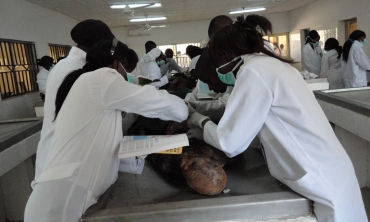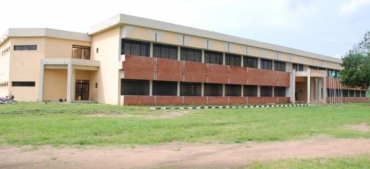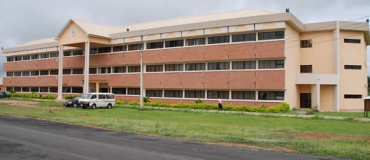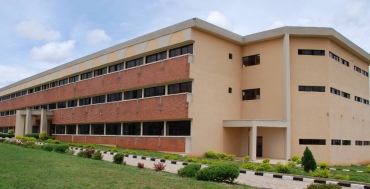 BRIEF HISTORY OF THE COLLEGE
BRIEF HISTORY OF THE COLLEGE
The College of Health Sciences is one of the pioneer Colleges of Osun State University, established at the inception of the University in September, 2007. Although the College has accreditation by the National University Commission to offer MBBS degree, the program was suspended during the 2012/2013 academic session due to lack of dedicated teaching hospital.
Welcome Address/Introduction
With the ever-increasing emphasis on ensuring that all undergraduates are given every opportunity to complete their education soundly and within the specified time limits in a fast-developing world, the College of Humanities and Culture, Osun State University, Ikire Campus, is at the forefront of producing high quality, well rounded, globally competitive and entrepreneurial graduates who are going to be catalysts for rapid and sustainable development in the age of globalization.
We are the custodians and projectors of things that illuminate our culture and the world around us. Through the humanities, students are made to understand human society clearly, behave more responsibly, comprehend more fully and feel more deeply. They also learn to express themselves effectively, understand the dynamism of cultural issues, appreciate the power of words and ideas, and interpret human experience.
The Ikire Campus is set within a picturesque piece of real estate surrounded by a natural topography designed for great intellectual work. It is the gateway campus of UNIOSUN, so strategically placed as to grant easy access to students and parents from any part of the country. Our College offers the most innovative curricula in which students are trained in a liberal and democratic manner to comprehend systems and patterns of existence, to think analytically and responsibly in order to be useful in any future task, and to embrace the complex challenges of the present world.
The humanities constitute the cornerstone of higher education in the world. In taking any of the courses we have mounted, students broaden their historical, ethical, social and international perspectives and enhance themselves intellectually and creatively for any job in the ever-expanding national and global markets.
Brief History of the College
Osun State University included the Bachelor of Laws (LL.B) programme in the academic brief that it submitted to the National Universities Commission (NUC) at the point of seeking approval for commencement of academic activities in 2006.
GENERAL INFORMATION
The College of Management and Social Sciences is one of the Colleges established with the creation of Osun State University in September 2007. The College is located in a serene and peaceful environment of Okuku town, a semi-urban area located 35km North of Osogbo town, the capital of Osun State. The college has an on-campus accommodation equipped with modern facilities for students.
General Introduction
The College of Science, Engineering and Technology is one of the six Colleges that took off at the inception of the Osun State University and the 80th University in Nigeria. The College was established to cater for the needs of students in Science, Engineering and Technology, and in particular to offer teaching, research and community service in these areas.






